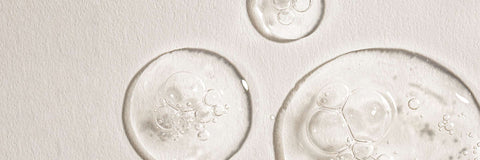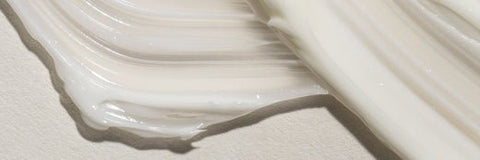When it comes to skin care, one of the best options for getting that glow long-term is adding a face serum to your daily lineup. They’re powerful, targeted to specific skin care issues or needs, and easy to apply.
With so many facial serums on the market, it can feel a bit overwhelming trying to figure out if you should incorporate a serum into your routine — and what the best serum choice is for you.
In this post, we’ll go over what a serum is, face serum benefits, what are the best serums for different skin types, and how to apply serum; plus, we will cover any other questions you might have about face serum. Keep reading for more, or watch our video below:
IN A NUTSHELL
Main Takeaways: A serum is a product that contains concentrated amounts of one or two key ingredients designed to target specific skin care needs.
Good to Know: Serums aren’t meant to replace your moisturizer, and they generally are not meant to be layered. If you are using more than one serum, apply one in the morning and the other in the evening, on clean skin.
Recommended Products: Nectar of the C Vitamin C Serum, Just Dew It Hydrating Serum, and ‘A’ Game Retinol Serum.
What Is Face Serum?
Face serum is a special addition to your skin care routine that can deliver added benefits and extra oomph. Serums differ from moisturizers and creams in that they offer concentrated amounts of one or two key ingredients that create powerful results for specific skin care needs.
Serums are typically light and tend to absorb more quickly than a moisturizer. They are meant to be applied to clean skin, so they can sink to the deeper levels of your skin.
There are several ingredients most commonly used in face serums. Some serums combine several of these, while others focus primarily on one or two. These ingredients include:
Vitamin E — This is a strong and powerful antioxidant known for its ability to protect, nourish, and moisturize skin.
Vitamin C — Vitamin C is an antioxidant with skin brightening properties to improve overall skin tone and radiance.
Retinol — A form of Vitamin A, retinol is another antioxidant that boosts collagen production in your skin, minimizing the look of fine lines and wrinkles.
Hyaluronic acid — This ingredient occurs naturally in our bodies and helps keep our skin and tissues hydrated, but we produce less of it as we age. It deeply hydrates and plumps the skin.
Peptides — Peptides are the building blocks of collagen and other proteins, working to smooth and improve the texture of skin.
Face Serum Benefits
You might be wondering why serum is important for skin? Depending on the face serum you choose, there are all kinds of different benefits.
A face serum can:
- Hydrate — Hydration is one of the key components when it comes to maintaining beautiful skin. Ingredients like hyaluronic acid, glycerin and aloe can all help restore hydration, helping skin to stay refreshed, youthful looking, and healthy.
- Reduce the look of fine lines and wrinkles — As our skin starts to show signs of aging, ingredients like vitamin C, retinol, and peptides can all help reduce the appearance of lines and wrinkles.
- Smooth skin and refine texture — The texture of our skin plays a big part keeping a youthful look , and ingredients like hyaluronic acid, vitamin C and peptides can all help to smooth and refine our skin.
- Provide antioxidant protection — Antioxidants fight environmental stressors that can accelerate the aging process. They’re found in vitamin E, vitamin C, retinol, hyaluronic acid and peptides, all of which can help provide long-term protection for your complexion.
- Plump skin and create a more youthful look — When your skin is able to retain moisture, it has that plump, healthy look that’s au naturale when you’re young. To keep that going over the long haul, incorporate ingredients such as vitamin C, retinol and hyaluronic acid.
- Minimize the appearance of dark spots — Dark spots are a result of various forms of skin damage, and they can become more prominent as we age. Vitamin C and retinol are your best friend when combating dark spots.

What Are the Best Face Serums?
Now that you know a little bit about the benefits of facial serum, you’re probably asking the million dollar question: what face serum do I need? It depends on your skin type, and there are a multitude of options for different facial serums.
The best serum for you is based on the results you’re looking for.
Best serum for glowing skin
If having glowing, Instagram-worthy skin is your goal, you’ve got plenty of options. The best serums to help your skin get glowing include vitamin C, retinol, hyaluronic acid and peptides. Try Nectar of the C, which includes a gentle form of vitamin C to brighten, hyaluronic acid to hydrate, and Vitamin E to soothe and heal.
Best serum for dry skin
Hydration is key if you’re looking for a serum to add to your dry skin care routine. You need ingredients that will help your skin retain, rather than lose, moisture. The best face serum options for dry skin include vitamin E, vitamin C and hyaluronic acid. Just Dew It is an ultra-hydrating serum with all of the above, plus antioxidant-rich sea buckthorn oil and prickly pear seed oil, which contains high concentrations of vitamin E.
Best serum for sensitive skin
When you’re dealing with sensitive skin, opt for ingredients that won’t further irritate or dry out your epidermis. Vitamin C is a great option, but seek out Sodium Ascorbyl Phosphate, a more stable and gentle form of vitamin C than L-Ascorbic Acid, which is frequently found in skin care products. Our Nectar of the C uses Sodium Ascorbyl Phosphate, making it appropriate for all skin types. And because they’re naturally produced by the body, serums with hyaluronic acid and peptides are also good choices for sensitive skin.
Best serum for combination skin
If your skin tends towards both dry and oily, it’s best to opt for a serum that’s designed to handle both. The best face serum options for combination skin are vitamin C, hyaluronic acid and peptides, which will help keep your skin balanced. Choose Nectar of the C vitamin C serum when you want to brighten and Just Dew It hydrating serum if you find your skin is dull and dehydrated.
Best serum for oily skin
If your skin tends to get a little oversaturated with oil, choose a serum that balances your skin’s natural oils. Opt for vitamin C, hyaluronic acid or retinol. While oily skin is never really dry, it can definitely become dehydrated. To treat this, we recommend Just Dew It hydrating serum. It restores much-needed water to the skin and helps to balance excess oils.
Best serum for mature skin
To combat unwanted signs of aging, incorporate a retinol serum into your routine. Retinol is best introduced gradually. Start with a gentle retinol serum like ‘A’ Game and apply every other evening, or as directed on the label. Once your skin adjusts, you can begin using it every evening to help firm your skin and reduce the appearance of fine lines, wrinkles and dark spots.
How to Apply Serum
Serum usually falls in the middle of your twice daily skin care routine. It should always be applied to clean skin (after your cleanser and your toner), and always before your moisturizer.
Here’s the best way to apply your face serum:
- Cleanse your skin with a face wash.
- Apply toner.
- Put a few drops of serum on your fingers or directly onto your face. Smooth onto skin. Let absorb for a minute or two.
- Apply moisturizer.
- Apply eye cream.
- Apply sunscreen (in the a.m.).
Pro tip: If your serum is taking a long time to absorb into your skin, there are two likely reasons – you need to exfoliate and remove the dead skin that is sitting on your top layer, or you may be using too much product.

Frequently Asked Questions About Serum
Do serums really work?
Yes, face serums are designed to deliver key skin care ingredients more quickly and deeper in your skin in order to get specific results long-term. They’re lightweight and contain concentrated ingredients like Vitamin C, Vitamin E, peptides, retinol, etc. For the most part, serums don’t work instantly, but they do deliver results over time.
Should I use facial serum?
It depends on your skin care needs, but face serums are effective for a variety of different purposes including to brighten skin, to moisturize, to minimize the signs of aging, and more.
What does face serum do?
From hydrating the skin in order to reduce the appearance of fine lines and wrinkles, to minimizing the appearance of dark spots and refining skin’s texture, serum truly does it all. A good serum that contains antioxidants will protect the skin from environmental stressors and is worth the cost and effort alone. Serum can smooth the skin, firm the skin, and even exfoliate. It really just depends on what you’re looking for your serum to accomplish.
Can I use face serum under eyes?
Facial serum isn’t designed to use on the delicate, thinner skin under your eyes. It’s better to apply face serum on the rest of your face and opt for an eye cream or serum that’s made specifically for that area.
Can face serum cause breakouts?
Sometimes using new products can cause temporary breakouts. This may be due to an allergy you may have to any of the ingredients, so it’s always best to spot test before using a new product. If you have breakout-prone skin, be sure to opt for a serum with clean (non-toxic) and botanical ingredients that are non-comedogenic, meaning that they won’t clog pores.
Face serum vs moisturizer vs face cream
Face serum serves a different purpose than moisturizers and face creams and is not meant to replace a moisturizer. While a serum can be hydrating, offering ingredients that will draw moisture to your skin, they typically lack occlusive ingredients that will lock in that moisture. Effective face creams and moisturizers are specifically formulated to hold in the good-for-you ingredients you just applied to your skin, thus sealing in the serum you applied previously.
Adding a Face Serum to Your Skin Care Routine
Now that you know what type of face serum you should add to your routine, you’ll be better prepared to sift through what’s available and choose one that’s right for you. And you don’t have to stop at just one! If you have more than one concern that you want to target, use one in the morning and another serum in the evening.
Note that serums typically aren’t meant to be layered, especially anything with retinol and vitamin C. If you are using a vitamin C product and a retinol product, use one in the morning and the other in the evening, but never both at the same time, as it can be very irritating to your skin and they basically cancel each other out.











